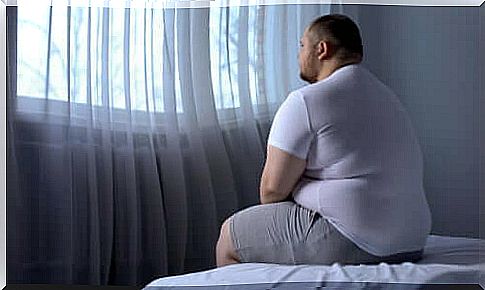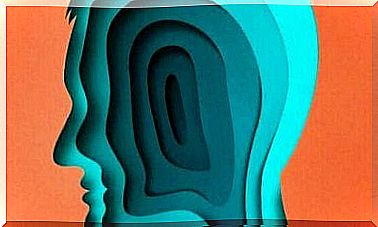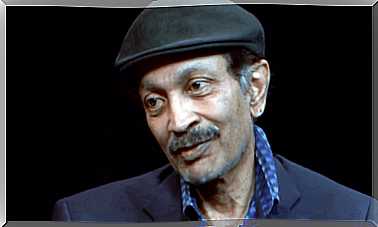Learn About Cognitive Recovery Therapy For Obesity

What is cognitive recovery therapy for obesity? We’ll talk about that today.
We live in a historical time period where society has begun to pay more and more attention to the body and nutrition. However, more and more people in the world have started to become overweight.
Diets and exercise programs in some cases do not give good results in the long run. Cognitive recovery therapy for obesity may then be helpful.
Research has shown that people who suffer from obesity have difficulty making good decisions in certain areas. It may be difficult for them to make good health decisions.
This may be because their executive functions differ from those of non-obese people.
Experts have not yet identified the cause of the executive profile of people with obesity. However, there is a two-way relationship between changes in executive function and obesity:
- People who suffer from obesity have abnormal metabolism that is related to glucose and cell inflammation, which has a negative impact on executive functions.
- Researchers have also found that people with obesity have higher stress levels, which is related to the changes in these functions.
- At the same time, the changes in the executive functions give rise to more obesity. The reason for this is that the person finds it more difficult to make appropriate decisions regarding how much to eat and what type of food he should choose. It also becomes more difficult for the person to control when he eats.
These points necessitate a way of dealing with the problem that goes beyond the conventional methods. Examples of such conventional methods are diets and physical exercise.
In this case, cognitive recovery therapy for obesity can be very helpful in achieving one’s therapeutic goals.

Cognitive recovery therapy for obesity
Cognitive recovery therapy for obesity involves the use of psychological interventions based on mental exercises.
The goal is to improve the cognitive strategies, thinking and how the person handles information. You can do this by consistently practicing these techniques.
This therapy stimulates the person to reflect on their own thoughts. Those who advocate the method believe that this makes the person adopt healthier behaviors.
The main goal is therefore to strengthen changed cognitive abilities.
When it comes to obesity, one must direct the cognitive treatment towards improving executive functions.
Cognitive therapy for obesity
Cognitive recovery therapy for obesity (CRT-O) is a therapy where you sit together. The goal is to optimize the executive functions.
It is believed that this can improve people’s thinking patterns when it comes to eating and exercising. The goal is to achieve a healthy lifestyle.
CRT-O was designed to provide people with obesity with tools to think differently.
This consists of a number of mental exercises that improve the person’s cognitive strategies by practicing information processes and other skills.
Research has shown that “weight loss programs” that contain CRT-O get better results. This means that the person loses more weight, gets a healthier lifestyle and that he will not overeat as much.
People who start with this therapy also experience a higher quality of life and a reduced inflammation.
Various studies have shown that CRT-O can improve weight loss, even when patients do not exercise or go on a diet. However, the results in this case will not be as good as in the people who also do this.
In the rest of the article, we will show you some activities that you can use to train your executive functions.
Activities that can improve your control
When we talk about control in this situation, we mean the person’s ability to limit their automatic responses. This makes it easier for the person to have other answers that are more appropriate.
In order for you to have better control, you must first and foremost avoid the first behaviors. Then it is meant that you should reflect on the thoughts that lead to the behavior itself.
The goal is for you to become aware of your own thoughts. You can then analyze them before proceeding with the action that the thought calls for.
It may be best to give you an example. Let’s say you have finished eating your dinner and suddenly feel the need to eat sweets.
Before you go and eat sweets, you should reflect on the content and meaning of your own thoughts:
- Why do I have to eat sweets?
- Is it hunger?
- Could it also be that I have not eaten enough carbohydrates?
- Am I trying to control any of my emotions? Which? Does this really help? Do I need to delete something?
- Will I feel better after eating sweets?
- What are the possible consequences of this behavior?
- Is there anything else I can do to feel better?
Interventions to improve working memory
Working memory refers to a person’s ability to remember what is necessary to perform a specific action.
Understanding and experience are probably the best ways to improve memory. It is therefore important that patients understand the reason for each intervention.
They should participate in strategy development, and also experiment with and adapt to changes in their own lives.

Activities to train cognitive flexibility
The term “cognitive flexibility” refers to a person’s ability to modulate their thoughts and actions in certain situations.
It specifically refers to new situations, situations that are constantly changing or situations that may seem unexpected.
To improve cognitive flexibility, you must learn to deal with old situations with new tools. The goal is also to force your brain to develop alternative strategies for a specific goal.
Some good examples of this are taking different paths to work or changing the order of your morning routine. You can talk to a friend about your work project. It is also good to meet new people.
If you want a more specific activity, you can try to adapt the diet plan to different environments (work, restaurants, home, etc.).
Another food-related example might be working on a meal plan. In this exercise, you have to combine different types of food.
To train central consistency
One can define central consequence as the ability to provide a complete and realistic perspective regarding a certain situation. During the review, it is also a good idea to go through conflict situations.
It is good to ask for a short review after a complicated and detailed reading. This can be verbal or written down.
This can therefore help to improve the ability to understand and develop a general idea without going into more detail.
Cognitive behavioral therapy is undoubtedly a critical tool for you to be able to improve your executive thinking skills. This is especially true for people who suffer from obesity.
It can also help them manage their own condition effectively in the long run.








